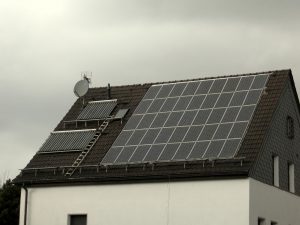Subscribe2
Benefits to building or upgrading to an energy efficient home
An energy efficient home utilizes building materials and systems to work together to create a highly efficient environment using less energy, and natural resources. Some organizations that classify and provide certifications depending on the level of energy efficiency include the The US Green Building Council, The National Green Building Standard, Energy Star and the DOE Zero Energy Star Ready Home. Energy efficient homes are sometimes confused with green homes. Green homes may utilize sustainably sourced or recycled materials and incorporate energy saving and water conservation features to reduce our impacts on the environment and create healthier habitats.
So, what are some of the benefits to incorporating these strategies?
Create a healthier environment: Using toxic free and sustainable materials can improve indoor air quality and combat pollution.
Tax benefits: Many governments and local authorities provide tax credits for utilizing energy star rated appliances and products such as doors, windows, insulation, metal roofs as well as sustainable sourced products.
Decreased monthly utility and maintenance costs: Residential heating and cooling alone make up 20% of the yearly energy use.
Reducing carbon footprint: Energy efficient homes reduce your dependence on traditional energy sources as they produce or most some of their energy needs through alternative sources like wind, sun, biomass and geothermal energy.
Tips for incorporating energy efficiency strategies. Some ideas to consider are as follows:
Replace Your Old Appliances with Eco-friendly Devices – Most older appliances use a greater amount of energy. By changing out your appliances such as an air conditioning unit or refrigerator you can save on energy consumption.
Heating and Cooling – This is usually among the largest energy consumers. Depending on where you live, you may often use heating and/or cooling devices. Improving the insulation of the exterior facade and installing energy efficient windows will help to create a better thermal envelope lowering heating and cooling costs.
Water Consumption – Using use low-flow fixtures and high efficiency appliances such as dishwashers and washer can help conserve water.
Compact Footprint – Plans with simple exterior walls with fewer bays, corners or protrusions utilize less construction materials. These areas reduce waste, cost and labor. A smaller home also uses less energy to cool and heat making it more affordable to maintain and build.
